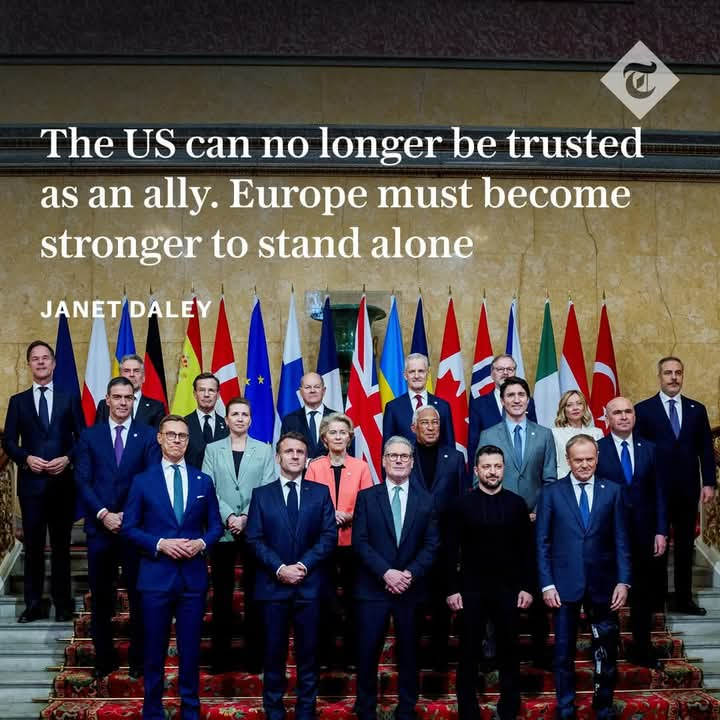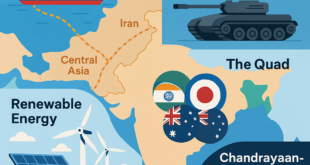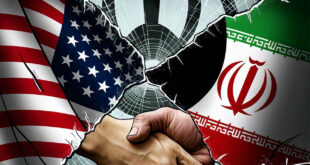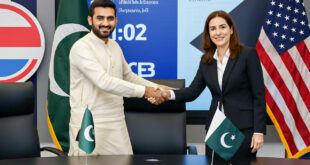The Shifting Landscape of Alliances: Europe’s Path to Sovereignty
In the annals of history, alliances have often been the bedrock of geopolitical stability.
The transatlantic alliance between the United States and Europe, forged in the aftermath of World War II, has been a cornerstone of global politics for over seven decades.
However, the recent geopolitical landscape suggests a profound shift; many argue that the US can no longer be relied upon as a steadfast ally.
As this perception gains traction, Europe faces an imperative: to bolster its own strength and capabilities in order to navigate a complex and uncertain future.
Historical Context: The Birth of the Transatlantic Alliance
The roots of the US-European alliance can be traced back to the devastation of World War II. The Marshall Plan, NATO’s establishment in 1949, and a shared commitment to democracy and capitalism created a robust partnership.
This alliance not only helped to rebuild war-torn Europe but also contained the spread of communism during the Cold War. For decades, the US provided military and economic support, reinforcing Europe’s security and stability.
A Shift in Perspective
However, the geopolitical dynamics began to change in the late 20th and early 21st centuries.
The end of the Cold War marked a period of optimism, yet it also led to a sense of complacency. The US, preoccupied with its global military engagements and domestic challenges, began to exhibit a more unilateral approach to foreign policy.
The 2003 invasion of Iraq, coupled with the growing polarization within American politics, led many European leaders to question the reliability of the US as a partner.
The Trump administration’s “America First” policy further exacerbated these concerns. With a focus on national interests, the US withdrew from international agreements and organizations that had long been pillars of global cooperation.
This shift prompted European nations to reevaluate their own security strategies and defense capabilities.
Europe’s Response: The Need for Strategic Autonomy
As the US’s reliability waned, European leaders recognized the necessity of developing their own strategic autonomy. The EU’s Global Strategy, adopted in 2016, emphasized the importance of strengthening Europe’s defense and security framework.
Initiatives such as the Permanent Structured Cooperation (PESCO) and the European Defence Fund (EDF) aimed to enhance military collaboration among member states.
The COVID-19 pandemic and the subsequent geopolitical tensions, particularly with Russia’s aggression towards Ukraine, underscored the urgency of this transformation.
The Path Forward.
Europe’s dependency on American military support has become increasingly untenable, prompting calls for a more integrated defense policy and enhanced capabilities.
A Stronger Europe for Europe to stand alone, it must overcome several challenges.
Firstly, member states need to bridge their differences and prioritize collective security.
This requires not only increased military spending but also a commitment to joint operations and interoperability among national forces.Secondly, Europe must also invest in its technological and cyber capabilities.
The future of warfare is increasingly digital, and European nations must advance their innovation to remain competitive.
Finally, fostering a unified political will is essential. The EU must speak with one voice on global issues, strengthening its diplomatic influence and ability to act decisively on the world stage.
A New Era of Independence
The notion that the US can no longer be trusted as a strong ally is a stark reminder of the fluidity in international relations. As Europe grapples with this reality, the opportunity for greater independence and resilience emerges.
By embracing strategic autonomy, Europe can not only safeguard its interests but also contribute to a more balanced and multipolar world order.As history unfolds, the choices made today will shape the future of Europe and its place in the global arena.
The journey toward a stronger, more self-reliant Europe is not without its challenges, but it is a necessary step in a world where alliances are constantly evolving.
 Top Trends Blogs
Top Trends Blogs




